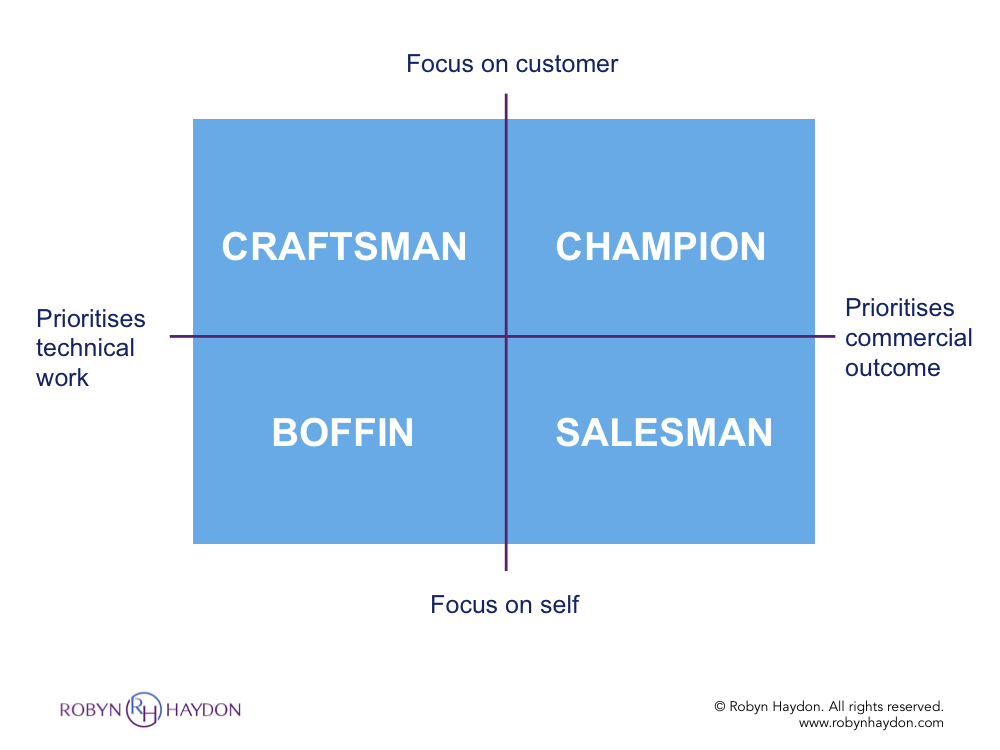In my proposal-writing workshops, I train hundreds of technical professionals every year, including engineers, architects, project managers, environmental scientists, quantity surveyors, and market researchers.
When I ask them what they like the most about proposals (apart from ‘winning them’), they will usually say ‘designing the methodology’, or ‘coming up with the price’.
Technical professionals don’t see themselves as salespeople, and may argue that they didn’t work for years to get good at their job so they could become one.
In reality, technical professionals have to win the job before they get to do the job. This means that their ability to successfully pitch for work has a profound impact on their job satisfaction, and impact they can make in their chosen career.
However, writing successful proposals requires a different skillset to the technical skillset with which they approach their other work.
When preparing a pitch or proposal, a technical professional who prioritises the work, and focuses mostly on themselves and the way they will do it, comes across as a ‘boffin’. Unless they have exceptional technical skills, boffins are likely to find themselves stuck doing routine work because they are not seen as customer friendly.
A professional who prioritises the technical work, but focuses on the customer, is seen as a ‘craftsman’. Customers appreciate craftsmen and their obvious pride in their work, but aren’t always prepared to pay a premium for it.
In contrast, a professional who prioritises the commercial outcome, but focuses mostly on themselves, will come across as a ‘salesman’. This is an uncomfortable position that most technical professionals will actively avoid.
Fortunately, those who are able to prioritise both the commercial outcome, and the customer, will be seen as a ‘champion.’ These are the technical professionals that customers really value – and want to hire again and again.
To win the work you deserve to win, a technical professional needs to be commercially smart, not just technically smart.
This means a shift from seeing opportunities mostly from your own perspective, and with the work as your priority, to seeing things from the customer’s perspective, and giving your best thinking to the outcomes that the work will achieve.

